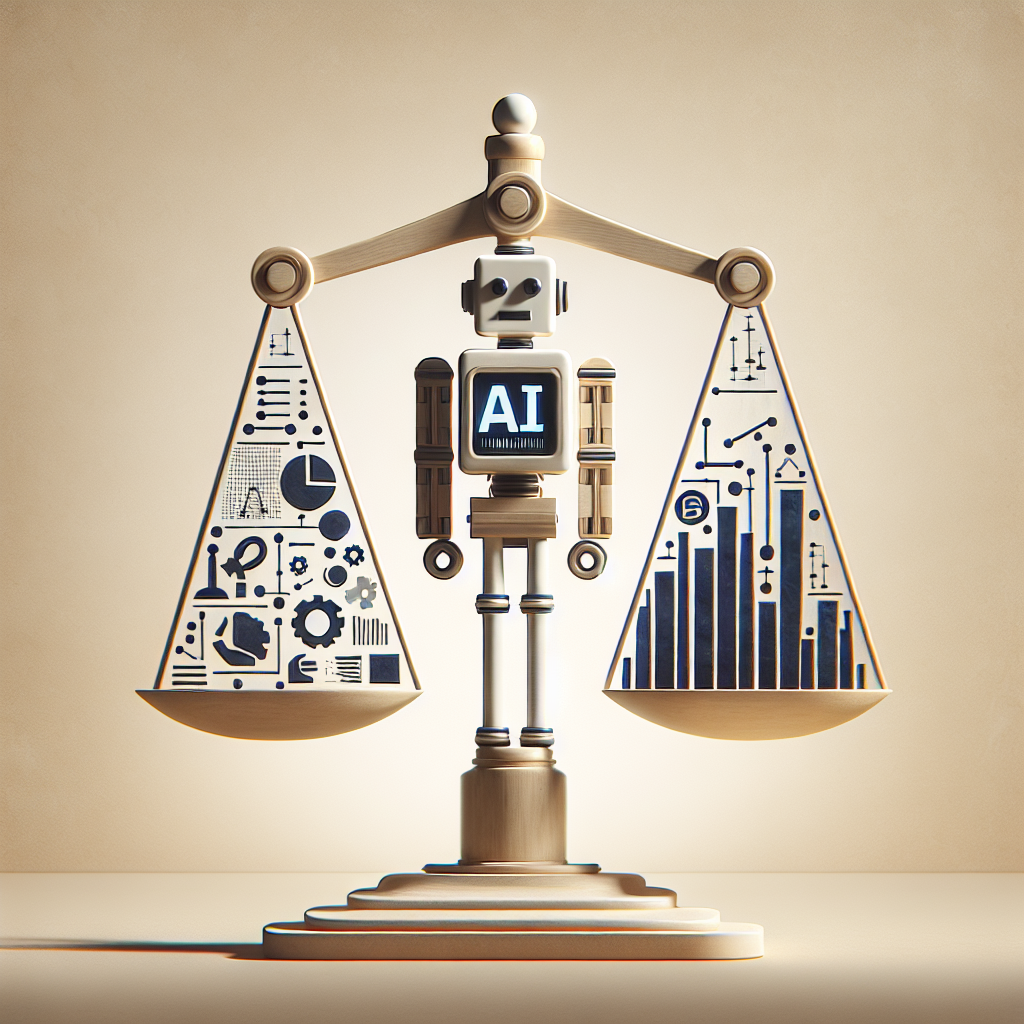Artificial Intelligence (AI) has revolutionized the way businesses operate, particularly in the field of marketing. AI technology has the capability to analyze massive amounts of data, predict consumer behavior, and create personalized marketing campaigns. However, with this power comes ethical implications that must be carefully considered.
One of the main ethical concerns surrounding AI in marketing is the issue of privacy. As AI technology gathers and analyzes vast amounts of data on individuals, there is a risk that this information could be misused or exploited. Marketers must ensure that they are transparent about the data they collect and how it is used. They must also obtain consent from consumers before using their personal information for marketing purposes.
Another ethical issue is the potential for AI to perpetuate bias and discrimination. AI algorithms are only as good as the data they are trained on, and if this data is biased, the AI system will produce biased results. For example, if an AI system is trained on data that is skewed towards a certain demographic, it may unfairly target or exclude other groups. Marketers must be vigilant in ensuring that their AI systems are trained on diverse and representative data sets to avoid perpetuating bias.
Additionally, there is concern about the impact of AI on jobs in the marketing industry. As AI technology becomes more advanced, there is the potential for it to automate many marketing tasks that are currently performed by humans. This could lead to job displacement and economic upheaval. Marketers must consider the ethical implications of using AI to replace human workers and strive to find a balance between automation and human labor.
Despite these ethical concerns, AI technology also has the potential to bring about positive change in the marketing industry. AI can help marketers better understand their customers, create more targeted and personalized campaigns, and improve the overall customer experience. By harnessing the power of AI responsibly, marketers can enhance their marketing efforts while also upholding ethical standards.
In conclusion, the ethical implications of AI in marketing are complex and multifaceted. Marketers must carefully consider the privacy, bias, and job displacement issues that arise when using AI technology. By being transparent, diverse, and thoughtful in their approach to AI, marketers can harness its power for positive change while also upholding ethical standards.
FAQs:
Q: How can marketers ensure that AI technology is used ethically in their marketing efforts?
A: Marketers can ensure that AI technology is used ethically by being transparent about the data they collect, obtaining consent from consumers, training AI systems on diverse and representative data sets, and finding a balance between automation and human labor.
Q: What are some examples of AI technology being used unethically in marketing?
A: Some examples of AI technology being used unethically in marketing include the misuse of personal data, the perpetuation of bias and discrimination, and the automation of marketing tasks that lead to job displacement.
Q: How can marketers leverage the power of AI technology in a responsible and ethical way?
A: Marketers can leverage the power of AI technology in a responsible and ethical way by using it to better understand their customers, create more targeted and personalized campaigns, and improve the overall customer experience while also upholding ethical standards.

